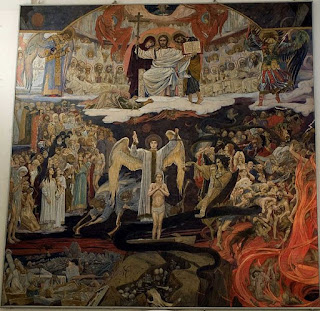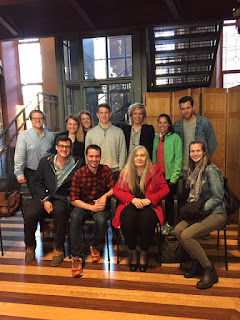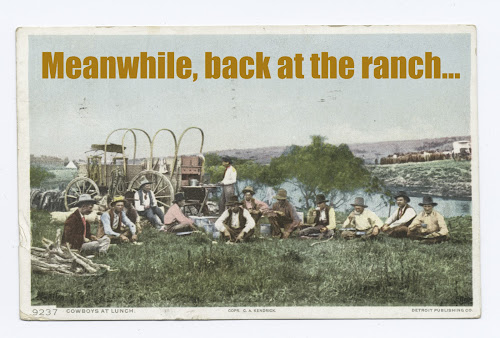What I Am Also Reading: Knitter on "Unitive Pluralism"

Lately I've been ruminating on John E. Sanders' book No Other Name: An Investigation into the Destiny of the Unevangelized (Eeerdmans, 1992) (Check out last week's post to get up to speed). From the Parliament of World Religions (Sept. 1893). L-R: Virchland Gahdhi, Hewitarne Dhrmapala, Swami Vivekananda, Nikola Tesla, and G. Bonet Maury(?). (Via Wikimedia Commons. PD-US-1923) Sanders' work, clearly, is in part a rejoinder to Paul F. Knitter's paradigmatic proposal for religious pluralism -- a "theocentric" approach that claims the great world religions represent diverse paths toward one goal, communion with God. How do I know this, apart from reading the footnotes (recommended)? Well the almost identical titles sort of give it away, for starters. Knitter seems, in his own idiom, to have anticipated the grammatical wisdom of the United Church of Christ: Never put a period where God has put a question mark. As one progresses toward the end of the b





